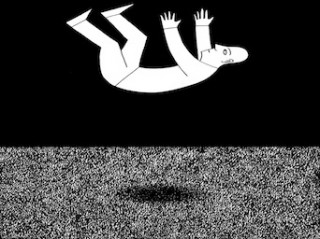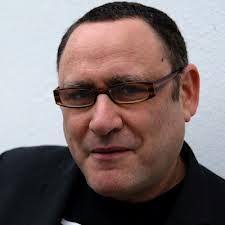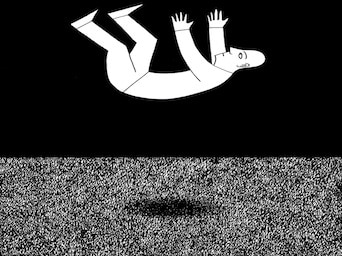 By Gilad Atzmon
By Gilad Atzmon
www.thespanner.net
When we were young there was hope in the air. There was good reason to look ahead. Some of us enrolled at university, but we also knew that if life did not shine on us, there were plenty of factories that offered enough jobs to those who were willing to toil. Yet it seems our children are not so lucky. Not much is awaiting them. The Western economy is on the brink of collapse.
When we were young, there were two ideologies around. In a cold manner, they bitterly chewing away at each other. One ideology maintained that equality and justice were the means towards liberation, whilst the other contended that celebrating one’s symptoms was actually the true meaning of human liberty. But it seems that these two ideologies have had very little impact on our life. In practice, we were all celebrating our symptoms – we were buying, selling, eating and drinking, but we somehow also enjoyed believing that ‘equality was a good thing’. Eventually these grand ideologies faded away and, not only do we not have ideologies anymore, we are not even capable of thinking ideologically. In the post ideological era, which we now inhabit, we kill millions in the name of ‘liberation’, we rain down depleted uranium shells on crowded cities whilst promising to export ‘liberal democracy,’ and we export Western ‘justice’ in Coca Cola cans.
When we were young, we reserved some respect for our political system. We somehow accepted that liberal democracy reflected our true values and beliefs. Fundamentally, we believed that it was a well-meaning idea and the best of all options. Hence we believed that at least theoretically, our democratically elected representatives were largely a true reflection of our desires.
We were not stupid but we were somewhat naïve. Being the sons and daughters of the Enlightenment, we were submerged in self-love. We were rich and spoiled. Yet, clearly, we failed to notice that our most elementary freedoms were being gradually diminished until the ‘freedom to consume’ was the only freedom left. We were basically free to buy and spend, to borrow and then to spend again and, without realising it, we were being reduced to a nation of shoppers with the political system existing solely to facilitate consumption, on a constantly growing grand scale.
When we were young, we read about liberation, and political struggles. We learned about heroic people who stood up against evil by fighting tyrants, Tsars, capitalists, communists, fascists and racists. Yet why is it so difficult now for us to identify precisely who is to be blame for the current global crisis, to identify who is to take responsibility for the collapse of our free markets and our own sense of values, ethics and justice? Is it a single person that we should blame? Is it Margaret Thatcher, George Bush, Tony Blair or Milton Friedman? Is it a party or rather is it an ideology? Is it the banks, Alan Greenspan or Goldman Sachs? Is it Wall Street or the City of London? Is it America? Or is it ‘just us,’ humanity as a whole, that we should blame?
It is reasonable to argue that the gigantic hole in global finance commonly known as the credit crunch is actually a gigantic amplification of the hole in each of our pockets. The greedy capitalist system known as ‘banking’ and ‘global expansionist markets’ can be understood as a vast manifestation of our own personal greed, as explored through relentless consumption. Hard capitalism is a ‘continuum state’ of greed between the personal and the entire system.
Liberal democracy is commonly realised as a natural political extension of individual liberties. It is only natural then, that some of the worse aspects of our society and political system are actually deeply rooted in each and every one of us. The relentless appetite that we find at the heart of the capitalist system is a multiplied mirror image of our own bottomless inclination towards consumption.
Any profound criticism of the liberal system at this stage then, should entail some harsh self-criticism. Each and every one of us is an autonomous and ‘self-sufficient credit crunch.’ Just like the banks, we have also been spending money we did not have. And it seems our societies and ourselves are now clearly subjected to a similar malaise. We have been celebrating our symptoms collectively and blindly for too long.
We sometime envy the Arabs and their Spring. They have grasped who their enemy is (Western puppets rulers) and what their salvation is (Islam). Tragically, we understand that we are spiraling down into an inevitable long and dark winter. We know that politics and ideologies have failed us. We accept that we are dwelling in a post-political and post-ideological era, and yet we fail to understand what this may entail. The world, as we know it, is changing rapidly. Our so-called ‘liberties’ have turned against us and we dread the meaning of it all.
And yet we do not posses a means of understanding the condition we are subject to, simply because such conditions are merely an amplification of ourselves and our most precious beliefs. We fail to admit or decide where the ‘self’ ends and the ‘West’ begins. We do not know where London’s AL Tahrir square is. We cannot decide whether we really want to be liberated and we do not seem capable of even identifying who the enemy is.
The Western subject, as well as Western society, is submerged in self-love. Somehow we cannot understand how it is that a system that was created to explore our human liberties, can fail.
I suggest that a partial remedy for our malaise might be acceptance of a certain level of uncanniness, an acceptance that reason has its limits, and that ‘being in the world’ may be slightly mysterious after all. However, it seems as if it may take a while before we are brave enough to admit to ourselves that this is indeed the case.

Gilad Atzmon is an Israeli-born British jazz saxophonist, novelist, political activist and writer.
Atzmon’s album Exile was BBC jazz album of the year in 2003. Playing over 100 dates a year,[4] he has been called “surely the hardest-gigging man in British jazz.” His albums, of which he has recorded nine to date, often explore the music of the Middle East and political themes. He has described himself as a “devoted political artist.” He supports the Palestinian right of return and the one-state solution in the Israeli-Palestinian conflict.
His criticisms of Zionism, Jewish identity, and Judaism, as well as his controversial views on The Holocaust and Jewish history have led to allegations of antisemitism from both Zionists and anti-Zionists. A profile in The Guardian in 2009 which described Atzmon as “one of London’s finest saxophonists” stated: “It is Atzmon’s blunt anti-Zionism rather than his music that has given him an international profile, particularly in the Arab world, where his essays are widely read.”
His new book The Wandering Who? is now availble at Amazon.com
ATTENTION READERS
We See The World From All Sides and Want YOU To Be Fully InformedIn fact, intentional disinformation is a disgraceful scourge in media today. So to assuage any possible errant incorrect information posted herein, we strongly encourage you to seek corroboration from other non-VT sources before forming an educated opinion.
About VT - Policies & Disclosures - Comment Policy




